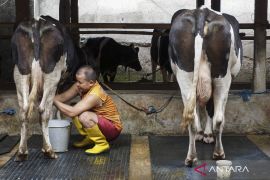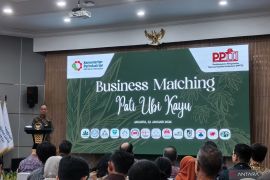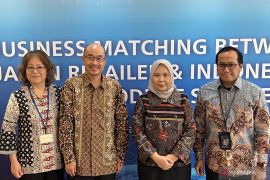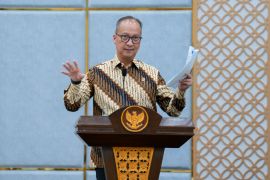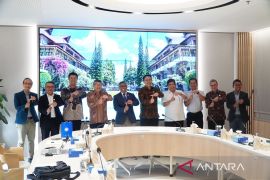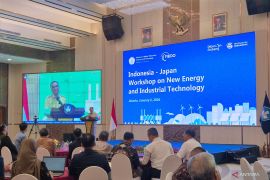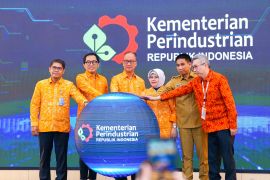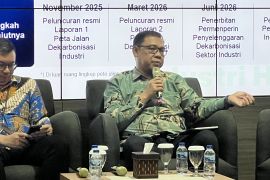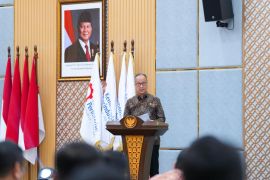Palm oil downstreaming is important since palm oil could be processed into margarine that produces double the added valueJakarta (ANTARA) - Expert staff of the Industry Ministry Andi Rizaldi stated that the program to downstream the palm oil sector was an important key in the downstream policy of agro-based industries.
"Palm oil downstreaming is important since palm oil could be processed into margarine that produces double the added value," he stated during his remarks at the 2022 Indef Midyear Study Seminar on Wednesday.
Rizaldi later noted that processing palm oil into cooking oil could generate an added value of up to 1.3 folds. If processed into cosmetics, the added value of palm oil could increase to four folds.
The same result could be seen in the downstreaming of mineral-based industries, such as nickel-based and other metal-based smelters, including those of iron, copper, and aluminum.
Related news: Government to expedite CPO exports to boost FFB price
"In the petrochemical industry, downstreaming can play a strategic role to generate added value since it produces primary raw materials to support downstream manufacturing industries, such as textiles, automotive, machinery, electronics, and construction," Rizaldi remarked.
He later noted that industrial downstreaming was one of the policies set by the government to achieve industrial development targets and increase industrial competitiveness. Industrial downstreaming would generate added value, strengthen the industrial structure, and provide job and business opportunities.
Rizaldi pointed out that the industrial sector was the largest contributor to the value of national exports, at over 72.83 percent, with a total of US$114.97 billion. Industrial exports during the January-May 2022 period reached US$83 billion and recorded a surplus of around US$11.48 billion.
Related news: Manufacturing exports down due to palm oil restrictions: BPS
Investment in that sector also recorded good performance in the first quarter of 2022, with an increase of 17 percent, from Rp88.3 trillion to Rp103.5 trillion.
The top five investments in the industrial sector in the first quarter of 2022 came from the basic metal, metal goods, non-machinery and equipment industries that amounted to Rp39.67 trillion, followed by the food industry, Rp19.56 trillion; the chemical and pharmaceutical industry, Rp16.91 trillion; the motor vehicle industry and other transportation equipment worth of Rp8.16 trillion; and the paper and printing industry contributing Rp3.83 trillion.
In addition, the performance of Indonesia's manufacturing Purchasing Managers Index (PMI) during the January-June 2022 period was at an expansive level of above 50, Rizaldi noted.
"However, we still have six months left. Hopefully, we would be able to keep the PMI above 50," he added.
Related news: Sustainable energy supply supports industrial competitiveness
Related news: Govt promotes energy savings program to reduce energy crisis impact
Translator: Kuntum Khaira R, Resinta S
Editor: Fardah Assegaf
Copyright © ANTARA 2022

